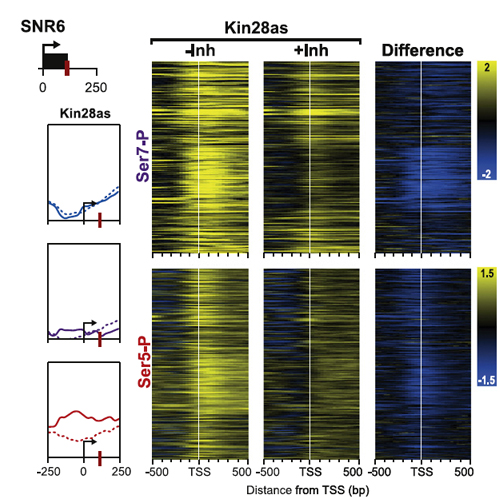TFIIH Kinase Places Bivalent Marks on the Carboxy-Terminal Domain of RNA Polymerase II
15-May-2009
Posttranslational modifications of the carboxyterminal domain (CTD) of the largest subunit of RNA polymerase II (Pol II) specify a molecular recognition code that is deciphered by proteins involved in RNA biogenesis. The CTD is comprised of a repeating heptapeptide (Y1S2P3T4S5P6S7). Recently, phosphorylation of serine 7 was shown to be important for cotranscriptional processing of two snRNAs in mammalian cells. Here we report that Kin28/Cdk7, a subunit of the evolutionarily conserved TFIIH complex, is a Ser7 kinase. The ability of Kin28/Cdk7 to phosphorylate Ser7 is particularly surprising because this kinase functions at promoters of protein-coding genes, rather than being restricted to promoter-distal regions of snRNA genes. Kin28/ Cdk7 is also known to phosphorylate Ser5 residues of the CTD at gene promoters. Taken together, our results implicate the TFIIH kinase in placing bivalent Ser5 and Ser7 marks early in gene transcription. These bivalent CTD marks, in concert with cues within nascent transcripts, specify the cotranscriptional engagement of the relevant RNA processing machinery.











